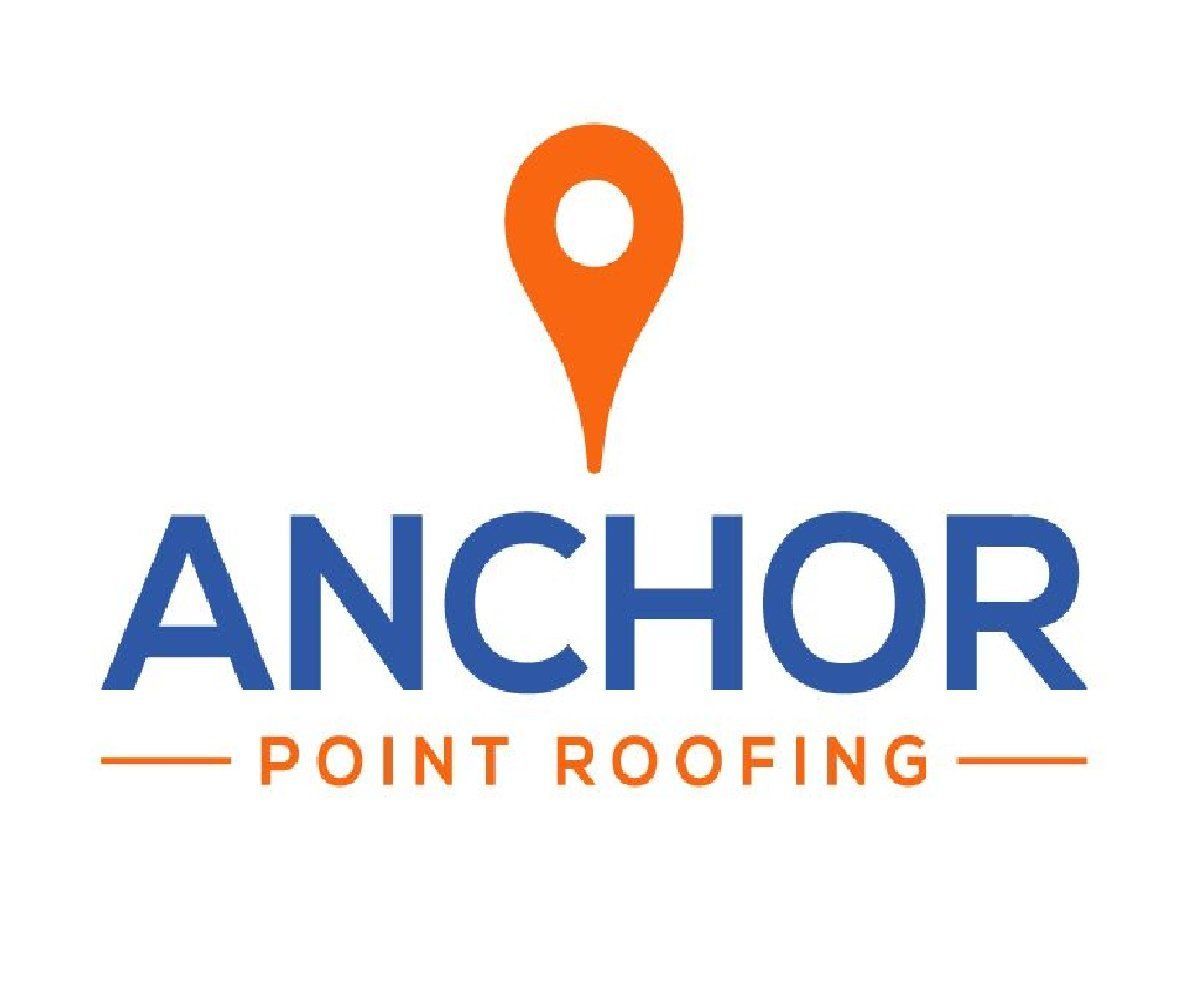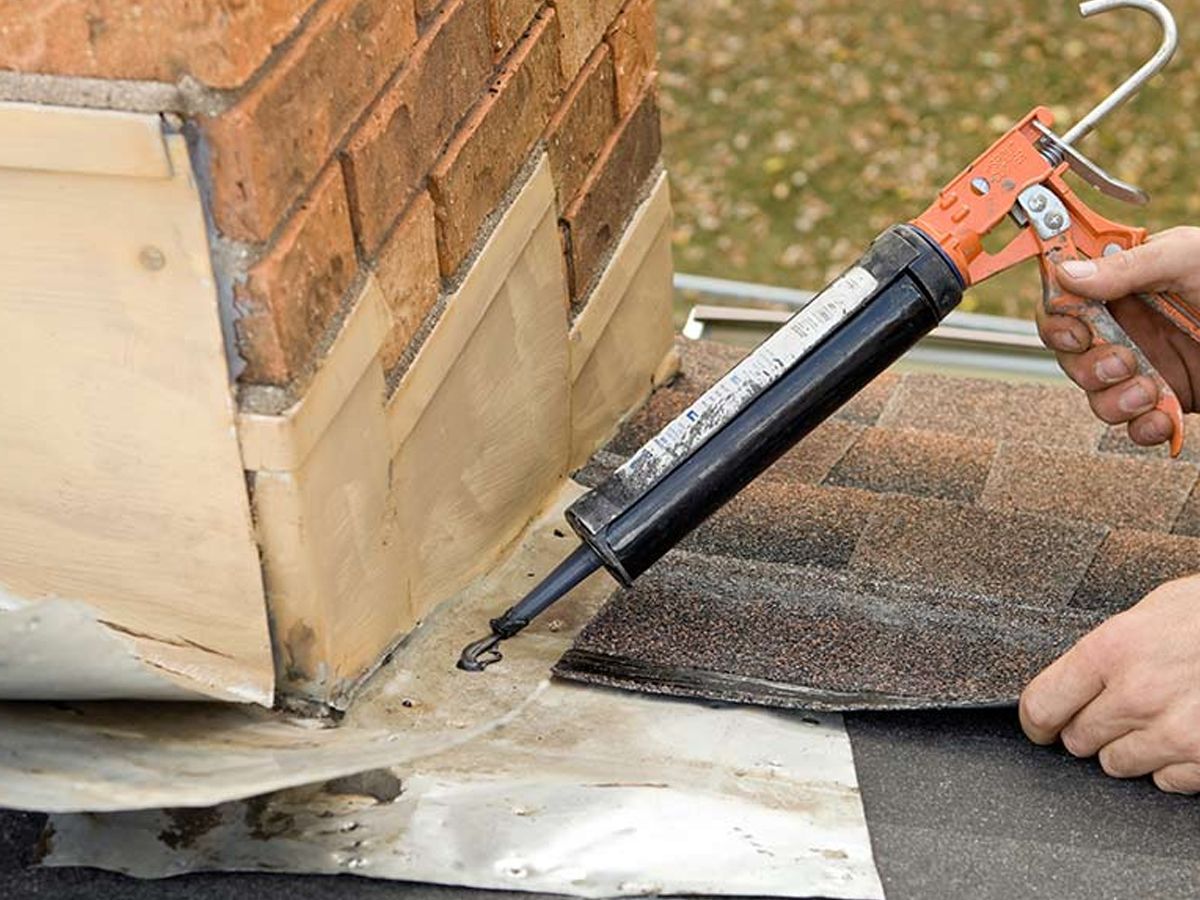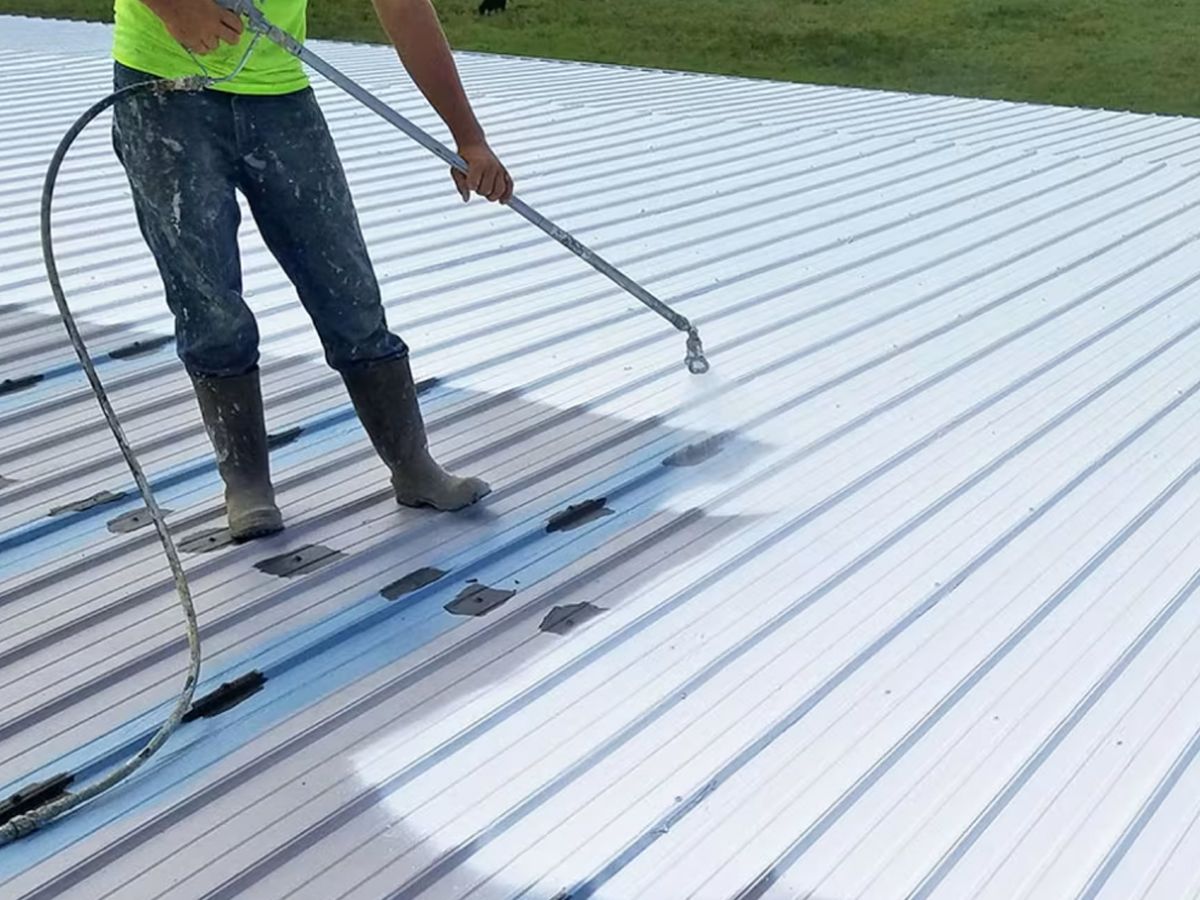About The Author
ANCHOR POINT ROOFING
Your home is more than just walls and windows—it’s an investment in your future. And one of the most critical components of your home’s protection is its roof.
But just like anything else, roofs need maintenance and care to ensure they last a long time and keep you safe and dry. That’s where roof coating comes in. In this comprehensive guide, we’ll explore everything you need to know about roof coating, including:
- What it is
- It’s various benefits
- Different types of roof coatings
- When a roof replacement is necessary
WHAT IS ROOF COATING?

Roof coating is like a shield for your roof. It’s a protective layer applied to the surface of your roof to seal and protect it from the elements. Think of it as sunscreen for your home—it helps prevent damage from UV rays, water, wind, and other environmental factors that can wear down your roof over time.
WHY IS IT BENEFICIAL?
Understanding the significance of the fascia board is essential to appreciate why its maintenance and replacement are critical for your home.
- Extended Lifespan: Roof coatings can extend the life of your roof by protecting it from damage caused by weather, UV rays, and other environmental factors.
- Energy Efficiency: Some roof coatings are designed to reflect sunlight, reducing the amount of heat absorbed by your roof and lowering your energy bills.
- Waterproofing: Roof coatings create a waterproof barrier that helps prevent leaks and water damage to your home’s interior.
- Cost-Effective: Compared to replacing your entire roof, applying a roof coating is a much more cost-effective solution for extending its life and protecting your investment.
- Environmental Benefits: Many roof coatings are environmentally friendly and can help reduce the urban heat island effect by reflecting sunlight and reducing energy consumption.
4 DIFFERENT TYPES OF ROOF COATINGS
To determine if your fascia board needs replacement, you should be able to recognize the common signs of damage:
1) ACRYLIC ROOF COATINGS:
These coatings are water-based and are known for their flexibility and durability. They are often used on flat or low-slope roofs and provide excellent UV protection.
✅ Pros of Acrylic Roof Coatings:
- Flexibility: Acrylic roof coatings are highly flexible, allowing them to expand and contract with the roof’s movements without cracking or peeling.
- UV Protection: They provide excellent protection against UV rays, preventing premature degradation and prolonging the life of the roof.
- Reflectivity: Acrylic coatings have reflective properties, helping to reduce heat absorption and lower energy costs by keeping the building cooler.
- Ease of Application: Acrylic coatings are easy to apply, making them a popular choice for DIY projects or professional installations.
- Cost-Effective: They are relatively affordable compared to other types of roof coatings, providing excellent value for money.
- Quick Drying: Acrylic coatings have a fast drying time, allowing for quicker completion of roofing projects.
❌ Cons of Acrylic Roof Coatings:
- Durability: While acrylic coatings are durable, they may not withstand heavy foot traffic or harsh weather conditions as well as some other types of coatings.
- Susceptibility to Ponding Water: Acrylic coatings may be prone to damage if exposed to standing water for extended periods, leading to premature failure in areas with poor drainage.
- Limited Lifespan: Acrylic coatings typically have a shorter lifespan compared to some other types of roof coatings, requiring more frequent recoating.
- Application Restrictions: They may not adhere well to certain roofing materials or surfaces, requiring additional preparation or priming before application.
- Color Fading: Over time, acrylic coatings may experience some color fading due to exposure to sunlight and other environmental factors, requiring periodic maintenance to retain their appearance.
- Not Suitable for All Climates: Acrylic coatings may not perform as well in extreme climates with frequent temperature fluctuations or high humidity levels.
2) SILICONE ROOF COATINGS:
Silicone roof coatings offer superior waterproofing and are resistant to mold and mildew growth. They are also highly reflective, making them an excellent choice for hot climates.
✅ Pros of Silicone Roof Coatings:
- Excellent Waterproofing: Silicone roof coatings offer superior waterproofing properties, effectively sealing the roof surface and preventing leaks.
- UV Resistance: They are highly resistant to UV rays, providing long-lasting protection against sun damage and helping to extend the life of the roof.
- Flexibility: Silicone coatings are flexible and can accommodate the movement of the roof without cracking or peeling, making them suitable for areas prone to temperature fluctuations.
- Low Maintenance: Silicone coatings require minimal maintenance once applied, reducing the need for frequent recoating or repairs.
- Mold and Mildew Resistance: Silicone coatings are resistant to mold and mildew growth, helping to maintain a clean and healthy environment.
- Reflectivity: Silicone coatings have reflective properties, reducing heat absorption and keeping the building cooler, which can lead to energy savings.
❌Cons of Silicone Roof Coatings:
- Higher Cost: Silicone roof coatings tend to be more expensive upfront compared to other types of coatings, which may deter some homeowners.
- Longer Drying Time: Silicone coatings have a longer drying time compared to acrylic coatings, which may extend the duration of the roofing project.
- Application Difficulty: Silicone coatings can be challenging to apply correctly, requiring professional installation to ensure proper adhesion and performance.
- Surface Preparation: Proper surface preparation is essential for silicone coatings to adhere effectively, which may involve cleaning and priming the roof surface.
- Not Suitable for All Roof Types: Silicone coatings may not be suitable for all types of roofing materials, limiting their applicability in certain situations.
- Potential for Ponding Water Issues: While silicone coatings are water-resistant, they may not perform well in areas with poor drainage or frequent ponding water, leading to premature deterioration.
3) POLYURETHANE ROOF COATINGS:
When it comes to creating a beautiful exterior, there are few things we like more than a roof covered in rustic-looking wood shingles. Whether you choose to purchase them in shingle or shake form, a wood roof is a great way to add character and charm.
While wood shingles typically last for 20-30 years, a lot depends on proper maintenance. In fact, a wood roof is one of the most maintenance-heavy roofs and requires care in order to prevent rotting and pest infestations.
- Flexibility: Acrylic roof coatings are highly flexible, allowing them to expand and contract with the roof’s movements without cracking or peeling.
- UV Protection: They provide excellent protection against UV rays, preventing premature degradation and prolonging the life of the roof.
- Reflectivity: Acrylic coatings have reflective properties, helping to reduce heat absorption and lower energy costs by keeping the building cooler.
- Ease of Application: Acrylic coatings are easy to apply, making them a popular choice for DIY projects or professional installations.
- Cost-Effective: They are relatively affordable compared to other types of roof coatings, providing excellent value for money.
- Quick Drying: Acrylic coatings have a fast drying time, allowing for quicker completion of roofing projects.
❌ Cons of Acrylic Roof Coatings:
- Durability: While acrylic coatings are durable, they may not withstand heavy foot traffic or harsh weather conditions as well as some other types of coatings.
- Susceptibility to Ponding Water: Acrylic coatings may be prone to damage if exposed to standing water for extended periods, leading to premature failure in areas with poor drainage.
- Limited Lifespan: Acrylic coatings typically have a shorter lifespan compared to some other types of roof coatings, requiring more frequent recoating.
- Application Restrictions: They may not adhere well to certain roofing materials or surfaces, requiring additional preparation or priming before application.
- Color Fading: Over time, acrylic coatings may experience some color fading due to exposure to sunlight and other environmental factors, requiring periodic maintenance to retain their appearance.
- Not Suitable for All Climates: Acrylic coatings may not perform as well in extreme climates with frequent temperature fluctuations or high humidity levels.
4) ASPHALT ROOF COATINGS:
Asphalt roof coatings are made from asphalt and other fillers and are often used on asphalt shingle roofs. They provide excellent waterproofing and UV protection.
✅ Pros of Asphalt Roof Coatings:
- Waterproofing: Asphalt roof coatings provide excellent waterproofing, preventing water infiltration and protecting the underlying roof structure.
- UV Protection: They offer moderate UV protection, helping to extend the life of the roof by reducing sun damage.
- Affordability: Asphalt roof coatings are generally more affordable compared to other types of coatings, making them a cost-effective option for budget-conscious homeowners.
- Ease of Application: They are easy to apply, typically requiring only a brush or roller, which makes them suitable for DIY projects or professional installations.
- Compatibility: Asphalt roof coatings are compatible with a wide range of roofing materials, including asphalt shingles, metal, and concrete, making them versatile and widely applicable.
- Availability: Asphalt roof coatings are readily available at most hardware stores and home improvement centers, making them convenient to purchase.
❌ Cons of Asphalt Roof Coatings:
- Limited Lifespan: Asphalt roof coatings have a relatively short lifespan compared to some other types of coatings, requiring more frequent recoating to maintain effectiveness.
- Brittleness: They can become brittle over time, especially in cold climates, which may lead to cracking and peeling.
- Heat Absorption: Asphalt roof coatings tend to absorb heat, which can increase the temperature inside the building and lead to higher energy costs for cooling.
- Maintenance: Asphalt roof coatings may require regular maintenance, such as cleaning and recoating, to ensure continued protection and performance.
- Odor: Asphalt roof coatings emit strong odors during application and curing, which may be unpleasant for occupants and require proper ventilation.
- Environmental Impact: Asphalt roof coatings contain petroleum-based ingredients and may contribute to environmental pollution during manufacturing and disposal.
HOW MUCH DOES ROOF COATING COST?
The cost of roof coating can vary depending on several factors, including the type of coating used, the size and slope of your roof, and the condition of the existing roof. On average, you can expect to pay between $1.50 and $5.00 per square foot for roof coating installation. While this may seem like a significant investment upfront, it’s important to consider the long-term savings and benefits that roof coating can provide.
HOW LONG DOES A ROOF COATING LAST?

The lifespan of a roof coating can vary depending on the type of coating used, the quality of the installation, and environmental factors such as climate and exposure to UV rays. In general, most roof coatings last between 5 and 15 years. However, with proper maintenance and care, some coatings can last even longer.
WHEN IS IT TIME TO REPLACE YOUR ROOF INSTEAD?
- Extensive Damage: If your roof has extensive damage, such as missing shingles, rotting wood, or structural issues, it may be more cost-effective to replace the entire roof rather than trying to repair it.
- Age: If your roof is nearing the end of its expected lifespan, it may be more practical to replace it rather than invest in additional coatings.
- Leaks: If you’re experiencing frequent leaks or water damage inside your home, it may be a sign that your roof is beyond repair and needs to be replaced.
- Energy Efficiency: If your roof is not energy-efficient and you’re experiencing high energy bills, replacing it with a more energy-efficient roofing material may be a better long-term solution than simply coating it.
GET A HIGH-QUALITY ROOF COATING
Roof coating is a cost-effective and practical solution for extending the life of your roof and protecting your home from the elements. By understanding what roof coating is, why it’s beneficial, the different types available, and when it’s time to replace your roof, you can make informed decisions to ensure the long-term health and safety of your home. So why wait? Protect your investment today with a quality roof coating from Anchor Point Roofing!
At Anchor Point Roofing, we can quickly diagnose any problems you are having with your overhang, and help you choose a design style that you will love.Contact us today for a free estimate!





